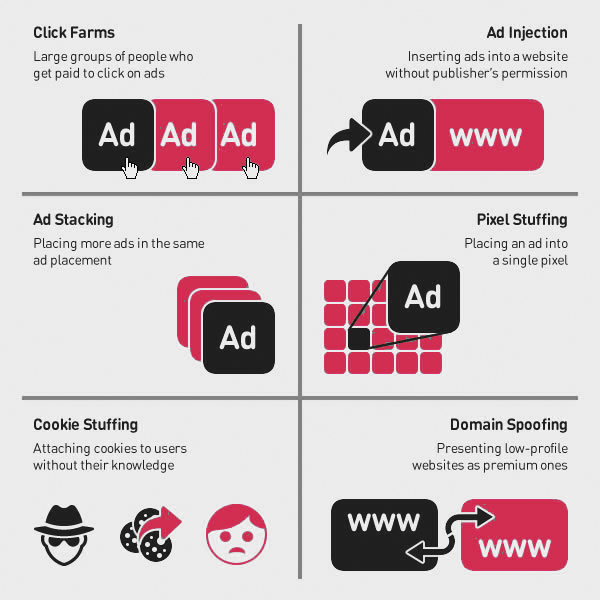 What’s scarcer than toilet paper in a mobbed Costco during a lockdown? Logic … or at least it seems that way when you consider the current thinking around ad fraud.
What’s scarcer than toilet paper in a mobbed Costco during a lockdown? Logic … or at least it seems that way when you consider the current thinking around ad fraud.
The scope of digital ad fraud is truly bonkers, yet brands continue to pump money into the same platforms that are perpetuating the mess. Meanwhile, fraud is siphoning off about 20% of the billions of dollars spent each year on digital ads.
Would marketers stand for this kind of fraud in print ads? On TV spots? With their catalog mailings? Absolutely not. So why is it just accepted or, more likely, ignored when it comes to online advertising?
“I would like to argue this proposition from a new point of view — from the point of view of those of us who are not computer scientists and cannot interpret the impenetrable computer code that underlies cyber theft, and with the added knowledge of the recent shocking revelations about undetected hacking,” writes The Ad Contrarian.
The author points out the incredibly alarming revelations of Russian hacking that slipped through the cybersecurity defenses at 250 government agencies as proof that we need to “reevaluate our thinking about ad fraud.”
Data, as we all know, can be interpreted depending on your existing point of view. So the Ad Contrarian breaks down what we know, then looks at it logically, taking data interpretation out of the loop. Here are a few of the facts the author asserts:
- online ads account for around $300 billion annually
- hackers have proven to be able to break through the most sophisticated cyber defenses in the world
- cracking current ad fraud detection tech is fairly easy to crack; and
- there is, to date, no international authority around ad fraud, and no cross-border penalties for committing it.
Following this logic, the author comes to some inescapable conclusions.
“If the Cyber Command, the NSA, and the Department of Homeland Security can be fooled, I don’t think it’s a stretch to assume that fraud detection software can also be fooled. Consequently, if state-sponsored hackers are fiddling the adtech ecosystem, it’s likely that ad fraud detection systems aren’t seeing it.
“It would be amazing if state-sponsored cybercriminals didn’t view the adtech marketplace as ridiculously easy pickings and even more delicious since there are no consequences for being discovered,” the author continues.
We know, as the author stresses, that criminals are stealing money in big buckets from advertisers. It doesn’t end there, though.
“In light of recent revelations, however, it seems highly likely that state-sponsored cyber operations would be powerfully attracted to the tens of billions of dollars that the adtech ecosystem is unwittingly dangling in front of them,” the author continues. “If so, ad fraud is probably a lot harder to detect and a lot larger than anyone thinks it is.”
The article ends with two simple questions:
“If you were a bad guy, and you could easily steal billions of dollars with a tiny possibility of detection and no possibility of consequences even if you were detected, why wouldn’t you?”
“If you are a marketer spending substantially on digital advertising, what reason do you have for believing the metrics you’re getting?”
I urge you to take a close read through the Ad Contrarian’s article and see if you can dispute the logic. Are you willing to give 20% of your budget to organized crime? Because this is exactly what ad fraud is.
